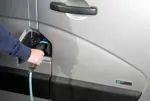Employees have been refusing to drive their own cars on business use at a Welsh county council after it withdrew its annual car allowance of £1,000 for grey fleet users.
On May 8, Isle of Anglesey County Council stopped paying the allowance to 238 employees who use their cars for ‘essential work purposes’.
Fleet News understands that affected employees who belong to public sector workers’ union Unison have not been using their cars for work purposes in protest since these changes were introduced.
A formal ‘grievance appeal’, which is being brought by Unison, will be heard by a specially-convened appeals panel at the council’s offices in Llangefni on October 29.
These essential users – who range from planning staff to social workers – were previously paid the £1,000 allowance in addition to 40p per mile for the first 8,500 miles per year and 15p per mile thereafter.
An Isle of Anglesey County Council spokesperson said: “The essential car users’ allowance was removed during the summer, following an extensive consultation process with staff and unions. A total of 238 staff were affected.
"They received a one-off £150 payment as a gesture of goodwill together with an increase in their mileage allowance from 40p per mile to 52.2ppm.”
It is understood that the new mileage rate applies to the first 8,500 miles and reverts to 15p per mile thereafter.
The changes have resulted in the council’s essential grey fleet users being paid the same as its 1,500 ‘non-essential’ users.
The Anglesey authority made the changes to save £250,000 a year while also safeguarding 16 jobs.
But Unison, which represents the majority of employees affected by the changes, has told Fleet News that the matter had not been resolved prior to the changes being made in May.
Geoff Edkins, Unison’s regional organiser, said that its members were “not at all happy” as they were now “subsidising the council when using their own cars”.
He said: “There currently is no agreement with the council.
“The terms that Anglesey imposed are similar to those used by other councils, but the difference is members in Anglesey rejected them.”
Industrial action, which started in June, is still ongoing and a formal grievance appeal is scheduled for October 29.
Consequently, essential car users are refusing to use their own cars for council business.
“This industrial action has already shown that the council has not planned well enough by providing sufficient pool cars,” said Edkins.
“We are hearing frequently that members have missed meetings because the pool car didn’t turn up or was not available.
“Also, the vehicles provided to staff have been inappropriate and, on occasion, not road worthy. For example, a wing mirror fell off a council van in the car park just after a member picked it up.
“The vehicles have also been filthy and do not present a professional image.”
In addition, it intended to provide a fleet of 15 liquid petroleum gas (LPG) vehicles to other employees also classed as essential users.
Edkins said early indicators suggested that the changes to the essential car users’ allowance were unlikely to result in savings of £250,000 and prevent 16 redundancies.
He added: “The aim was to make savings to protect jobs and services. However, redundancies are being made and the council is proposing cuts to services or privatisation.
“This means the cut to the essential car users’ allowance has not been effective in avoiding job losses.”
Dialogue between the council and Unison officials about the removal of the essential car users’ allowance has been ongoing since September 2011.
Fleet News understands the council initially wanted to scrap the £1,000 annual car allowance while simultaneously bringing in the HMRC rate of 45p per mile for the first 10,000 miles and 2p thereafter, but this was rejected.















Login to comment
Comments
No comments have been made yet.